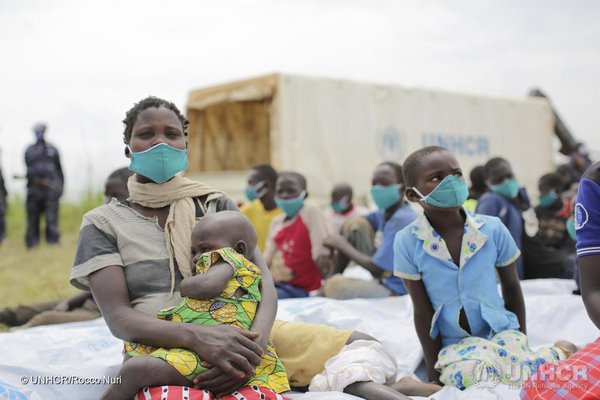- Share this article
- Subscribe to our newsletter
Eastern Africa: Food rations cut for refugees
Serious hunger and malnutrition loom for millions of refugees across Eastern Africa who depend on assistance from the United Nations World Food Programme (WFP) to survive, as the socio-economic impact of the COVID-19 pandemic reduces vital funding from donors, WFP warns in late August 2020.
The organisation has already been forced to reduce food or cash transfers by up to 30 per cent for over 2.7 million refugees in Ethiopia, Uganda, Kenya and Djibouti. WFP will be forced to cut deeper in the coming months unless urgent additional funding is received in time.
Refugees are especially vulnerable to COVID-19
Refugees are especially vulnerable to the spread of COVID-19 because they live crowded together in camps lacking access to health services, clean water and sanitation. They are affected both by the wider socio-economic impact of the pandemic as well as by the disease itself. The most vulnerable women, children and elderly are increasingly at risk of becoming malnourished, which can in turn impact their immune systems and increase their risk of being infected by disease, a tragic vicious cycle in the midst of a pandemic.
WFP requires USD 323 million to assist refugees in the region over the next six months - this is 22 per cent higher than during the same period a year earlier.
COVID-19 restrictions closed schools in refugee camps, meaning that children missed out on vital school meals in Ethiopia, Kenya, South Sudan, Rwanda. In all these countries, except Rwanda, funding shortages meant that WFP was unable to provide take-home rations to refugee children to help them study at home and stay nourished.
New donors needed to prevent further cut in rations
The situation is so serious for refugees that WFP is appealing both to traditional donors and new would-be donors, such as International Financial Institutions (IFIs), to step forward and assist refugees - precisely because their vulnerability has increased even more with COVID-19. Donors such as the World Bank have stepped up to support governments of the region in assisting poor people living in informal settlements in urban areas, after millions lost their livelihoods due to the economic downturns triggered by COVID-19 restrictions.
If WFP is forced to continue cutting rations for refugees, this could prompt refugee communities to move within host countries or even across borders as they become more desperate to meet their basic needs. With the coronavirus spreading, such movements could not come at a worse time.
(WFP/ile)
Read more at the WFP website


